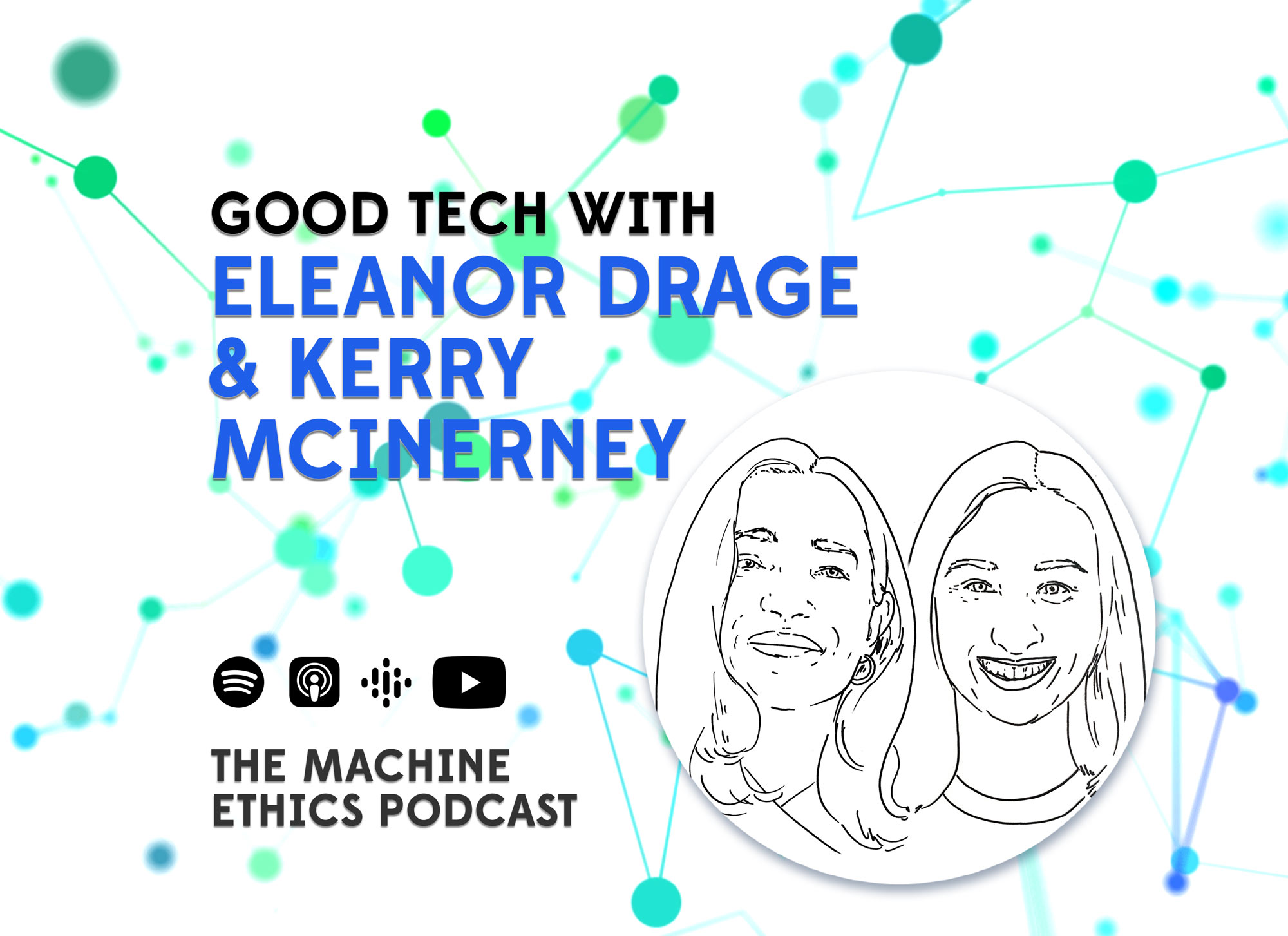
ΑΙhub.org
The Machine Ethics podcast: Good tech with Eleanor Drage and Kerry McInerney

Hosted by Ben Byford, The Machine Ethics Podcast brings together interviews with academics, authors, business leaders, designers and engineers on the subject of autonomous algorithms, artificial intelligence, machine learning, and technology’s impact on society.
Good tech with Eleanor Drage and Kerry McInerney
This episode we’re chatting with Eleanor and Kerry on good technology and if it’s even possible, that technology is political, watering down regulation, the magic of AI, the value of human creativity, how Feminism, Aboriginal, and mixed race studies can help AI development, the performative nature of tech, and more…
Listen to the episode here:
Dr Kerry McInerney (née Mackereth) is a Research Fellow at the Leverhulme Centre for the Future of Intelligence at the University of Cambridge, where she co-leads the Global Politics of AI project on how AI is impacting international relations. She is also a Research Fellow at the AI Now Institute (a leading AI policy thinktank in New York), an AHRC/BBC New Generation Thinker (2023), one of the 100 Brilliant Women in AI Ethics (2022), and one of Computing’s Rising Stars 30 (2023). Kerry is the co-editor of the collection Feminist AI: Critical Perspectives on Algorithms, Data, and Intelligent Machines (2023, Oxford University Press), the collection The Good Robot: Why Technology Needs Feminism (2024, Bloomsbury Academic), and the co-author of the forthcoming book Reprogram: Why Big Tech is Broken and How Feminism Can Fix It (2026, Princeton University Press).
Dr Eleanor Drage is a Senior Research Fellow at the University of Cambridge Centre for the Future of Intelligence, and teaches AI professionals about AI ethics on a Masters course at Cambridge. She specialises in using feminist ideas to make AI better and safer for everyone. She is also currently building the world’s first free and open access tool that helps companies meet the EU AI act’s obligations.
She has presented at the United Nations, The Financial Times, Google DeepMind, NatWest, the Southbank Centre, BNP Paribas, The Open Data Institute (ODI), the AI World Congress, the Institute of Science & Technology, and more. Her work on AI-powered video hiring tools and gendered representations of AI scientists in film was covered by the BBC, Forbes, the Guardian and international news outlets. She has appeared on BBC Moral Maze and BBC Radio 4 ‘Arts & Ideas’.
Eleanor is also the co-host of The Good Robot Podcast, where she asks key thinkers ‘what is good technology?’. She also does lots of presentations for young people, and is a TikToker for Carole Cadwalladr’s group of investigative journalists, ‘The Citizens’. She is also an expert on women writers of speculative and science fiction from 1666 to the present – An Experience of the Impossible: The Planetary Humanism of European Women’s Science Fiction. She is the co-editor of The Good Robot: Feminist Voices on the Future of Technology, and Feminist AI: Critical Perspectives on Algorithms, Data and Intelligent Machines.
She began her career in financial technology and e-commerce and co-founded a company selling Spanish ham online!
About The Machine Ethics podcast
This podcast was created and is run by Ben Byford and collaborators. The podcast, and other content was first created to extend Ben’s growing interest in both the AI domain and in the associated ethics. Over the last few years the podcast has grown into a place of discussion and dissemination of important ideas, not only in AI but in tech ethics generally. As the interviews unfold on they often veer into current affairs, the future of work, environmental issues, and more. Though the core is still AI and AI Ethics, we release content that is broader and therefore hopefully more useful to the general public and practitioners.
The hope for the podcast is for it to promote debate concerning technology and society, and to foster the production of technology (and in particular, decision making algorithms) that promote human ideals.
Join in the conversation by getting in touch via email here or following us on Twitter and Instagram.









